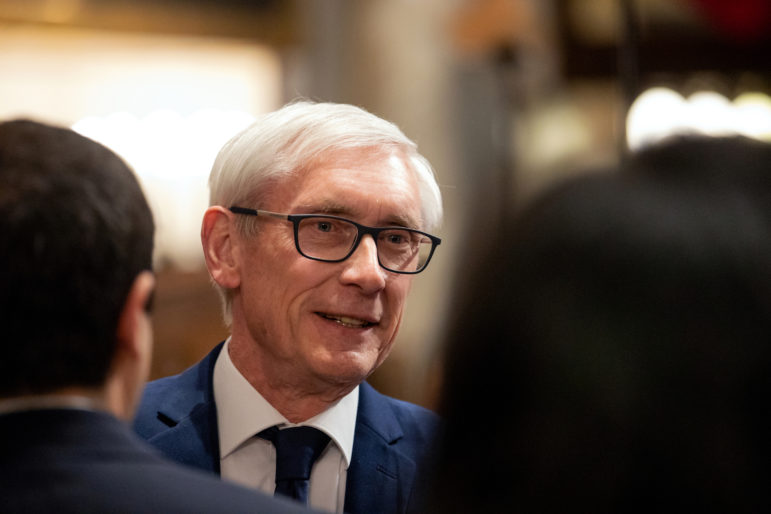Surplus Leaves Evers, Legislators Even Further Divided
Unprecedented $4.4 billion surplus is huge opportunity. But for what?
It takes a lot for Bob Lang, who has been the most respected watchdog of state government’s finances for decades, to use the “u” word. But the veteran director of the nonpartisan Legislative Fiscal Bureau did just that last week in a report to state officials:
“The increase in general fund tax collections in 2021, particularly in the months of April and May, is unprecedented.”
It was a stunning update on the state government’s cash position for Democratic Gov. Tony Evers and Republicans who control the Legislature: Tax collections will be $4.4 billion higher than expected by mid-2023.
The projection came weeks before the July 1 start of the next 2021-23 budget cycle. If the governor and lawmakers can’t agree on a new budget by then, state spending continues at the pre-July 1 pace.
Why will income, sales, corporate and other general-fund taxes through mid-2023 soar by about 8% over mid-pandemic projections made as recently as January?
Individual income tax payments through the first months of 2021 jumped by 6% — three times the January estimate, Lang noted in the final fiscal update before the governor and Legislature make final budget decisions. “This is likely due, in part, to the unprecedented level of federal economic assistance provided in response to the pandemic, which has bolstered incomes for many individuals during tax year 2020 and 2021,” Lang added.
It’s ironic that federal aid to help Wisconsin recover from COVID-19, which has sickened more than 611,000 state residents, and killed almost 8,000, lays the groundwork for a dramatic showdown between the executive and legislative branches over how the $4.4 billion windfall will be spent.
The additional $4.4 billion in taxes by mid-2023 justifies new spending Evers called for in the budget he outlined in February, the governor added: “I’m proud of the work we’ve done to respond to COVID-19 and put our economy in the best position to recover, which is why there’s no excuse for choosing not to fully invest in our kids and our schools, Broadband, venture capital and support for Main Street businesses, among other critical priorities, that will ensure we’re bouncing back and better than we were before this pandemic hit.”
But Republicans won’t use the new cash to justify spending hikes. Five Senate Republican leaders — Senate President Chris Kapenga, Majority Leader Devin LeMahieu, Finance Committee Cochair Howard Marklein and Finance Committee members Duey Stroebel and Dale Kooyenga — said raising spending significantly would invite long-term disaster.
“This is a temporary jump in tax revenue—sound financial planning would require that this money is not spent on more government programs, but returned to the taxpayer,” Kapenga said. “There is no magic money tree, folks.”
“Hard-working taxpayers gave the state a massive surplus,” LaMahieu added. “We will take this moment to consider ways to significantly reduce the tax burden on workers and Main Street businesses and pay off state debt.”
Four top Assembly Republicans — Speaker Robin Vos, Majority Leader Jim Steineke, Finance Committee Cochair Mark Born and Speaker Pro Tem Tyler August — also vowed to cut taxes with that $4.4 billion.
“Assembly Republicans will continue to advance a reasonable, responsible and realistic budget that spends within our means, while also avoiding huge tax hikes on Wisconsin residents and businesses and welfare expansion like Evers proposed,” said Born. The Finance Committee’s budget will include “meaningful tax relief.”
A Democratic governor wants more spending. Republican legislators want tax cuts. A July 1 deadline. It’s Capitol crunch time.
Steven Walters has covered the Capitol since 1988. Contact him at stevenscotwalters@gmail.com
If you think stories like this are important, become a member of Urban Milwaukee and help support real, independent journalism. Plus you get some cool added benefits.
The State of Politics
-
RNC Brings Fame to Gen Z Party Leader
 Jul 15th, 2024 by Steven Walters
Jul 15th, 2024 by Steven Walters
-
Wisconsin’s Republican Roots Run Deep
 Jul 8th, 2024 by Steven Walters
Jul 8th, 2024 by Steven Walters
-
Feuding Supreme Court Justices Need a Break
 Jul 1st, 2024 by Steven Walters
Jul 1st, 2024 by Steven Walters






















